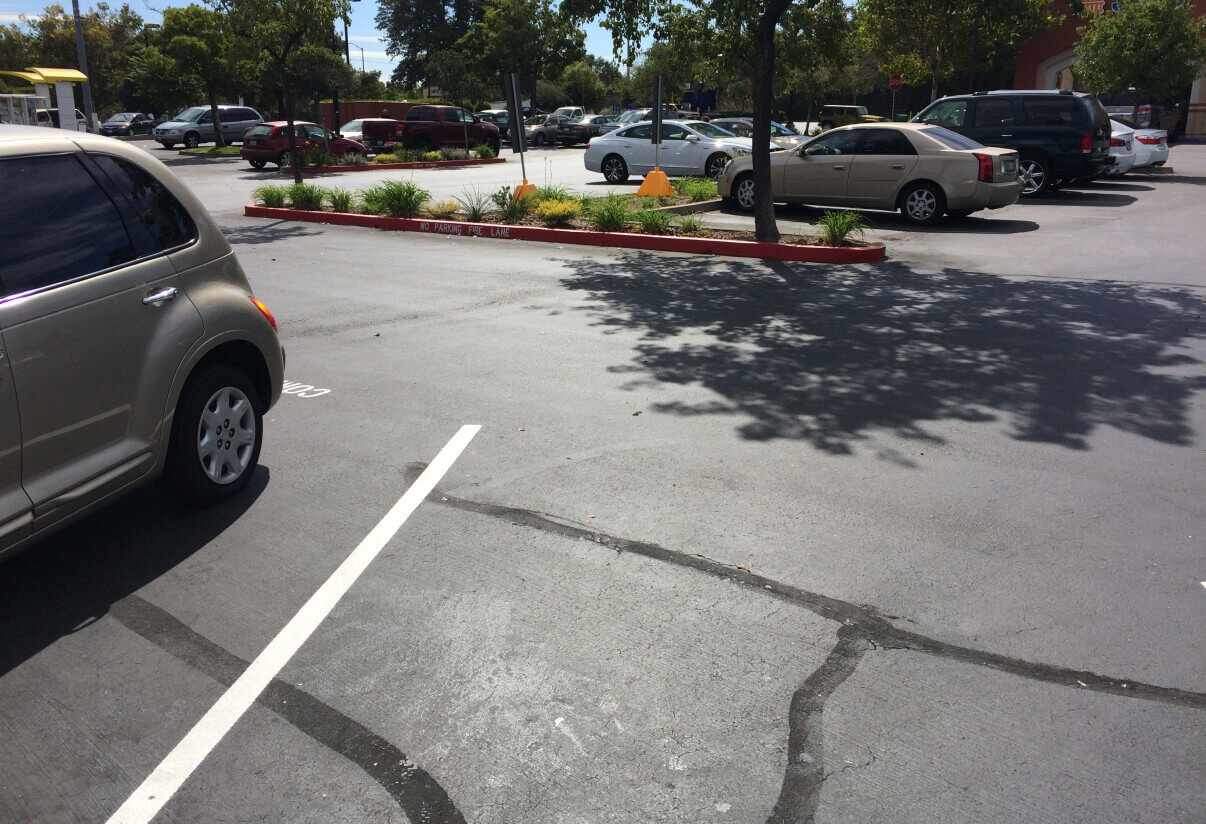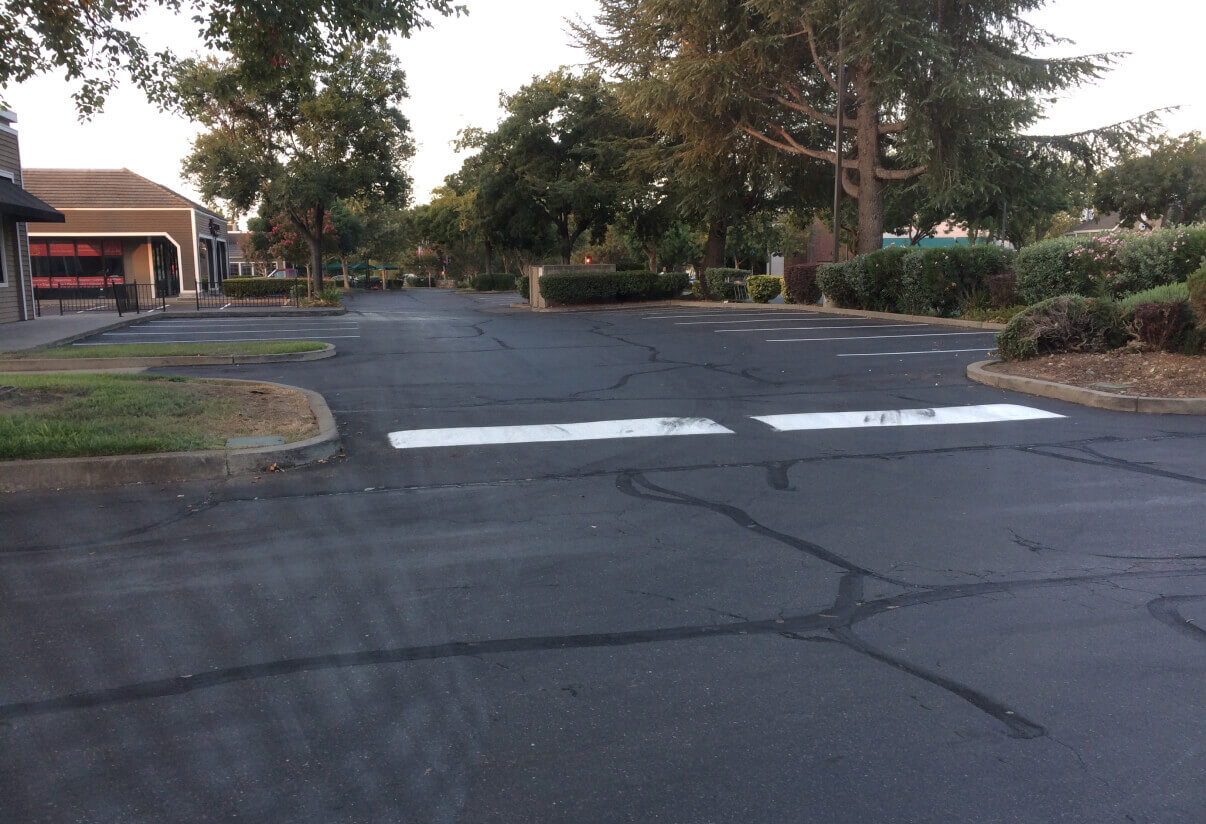
Crack Sealing
A newly installed asphalt pavement is flexible; but, over time, it will become more rigid and susceptible to cracking due to heavy traffic loads, harsh weather conditions, oil leaks, and other irritants.
Identifying pavement cracks and sealing them in a timely manner is the most cost-effective preventative maintenance procedure. That’s because a sealed crack is protected from water penetration. If left untreated, water is free to permeate the surface through the crack and erode the base or sub-base. Furthermore, open cracks can quickly widen and spread with the repeated stress of traffic and weather conditions such as freeze/thaw cycles, which leads to more expensive structural repairs. Get a Quote
Which Pavement Cracks Should Be Sealed?
There are many different crack types, easily identified by their pattern. For example, longitudinal cracks appear in a long, straight line. Block cracks appear in a square shape, intersecting at right angles. But, regardless of type, to be a good candidate for crack sealing, cracks should be isolated and measure ¼-inch to 1-inch in width. If cracks are widespread and measure greater than one inch, or appear in alligatored areas, asphalt removal and replacement may be necessary.
Crack Sealing or Crack Filling?
We only perform sealing or routing using hot-applied crack sealant because the material is flexible and expands and contracts with the crack. Crack filler material also exists, but it is primarily used to fill smaller or isolated areas of cracks on non-commercial pavement.
Work with Local Crack Sealing Experts
The performance of crack sealant depends on its softening point, which varies in different climates. That’s why there are many different types of crack sealants engineered to perform in specific temperature ranges. To select the right product for your parking lots, we work with reputable material suppliers and consult local crack sealing contractors from our network of pre-qualified partners. Local crack sealing contractors know the regional factors affecting product selection and application. Once materials are agreed upon and specified, it is easier to compare bids and get what you pay for. Get a Quote

How Much Does Crack Sealing Cost?
Consider this scenario—a timely application of crack sealant (at $0.75/LF) to a 150 LF longitudinal crack, would cost $112.50. However, if you were to defer crack sealing for just a few years, a longitudinal crack would widen and fracture causing alligator-type cracking in the surrounding pavement. To repair this would require 900 SF of asphalt removal and replacement for a total of $3,600.
Hundreds or thousands? We’ll help you make the easy choice. So, don’t stress when your pavement cracks, call Let’s Pave and we’ll get crack’in!

Rapid Response Recovery
Learn how to identify and assess risks on your pavement assets, prevent liabilities, and use rapid reaction to your advantage.
Let’s learn










